The experience of participating in an interactive exercise promotion programme during a recent multi-day training event in Pakistan sparked numerous physical activity projects that will reach communities far beyond the meeting participants and have a lasting impact in rural Pakistan.
As part of the Relab-HS Clinical Skills Training Program, a 3-day in-person meeting was held in Pakistan in February to promote physical activities in communities. It was hosted by Ziauddin University and other Karachi based organisations including the Department of Empowerment of Persons with Disability (DEPD) and brought together an interdisciplinary group of 18 participants from two provinces in Pakistan; KP and Sindh.
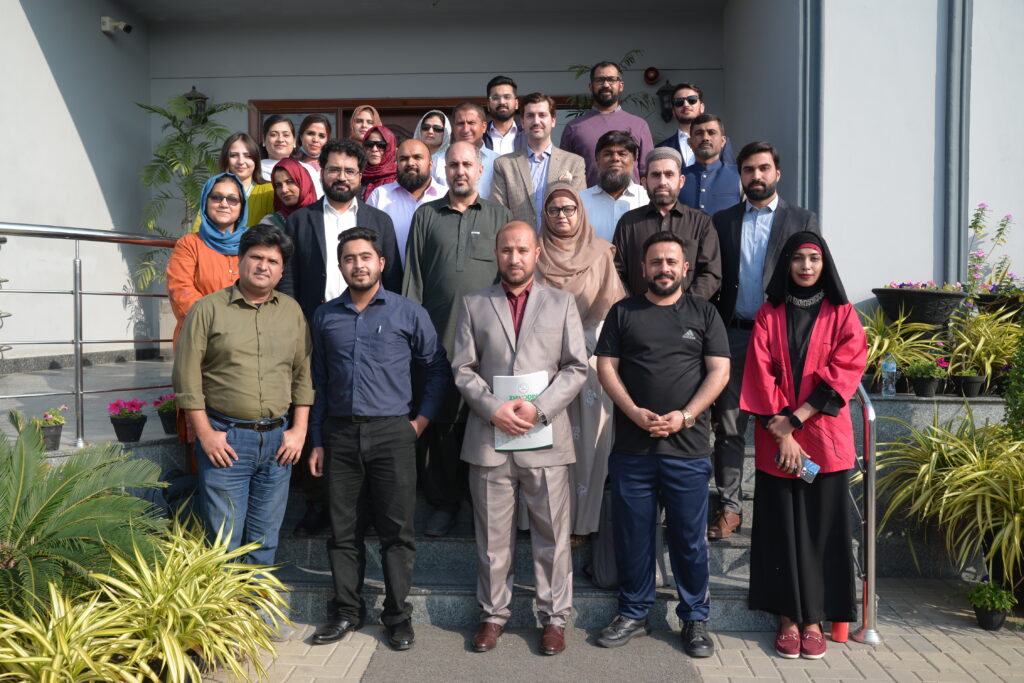
The hugely interactive meeting was hosted by Neelum Zehra, occupational therapist and ReLAB-HS Educational representative for Pakistan along with Professor Dr Sumaira Imran Farouqui (Dean Faculty of Allied Health Sciences) and Abid Khan (physiotherapist and Assistant Professor) from Ziauddin University. It was an opportunity to discuss and practice techniques and hands-on skills after participants completed the Physiopedia Plus online Physical Activity Programme in preparation.
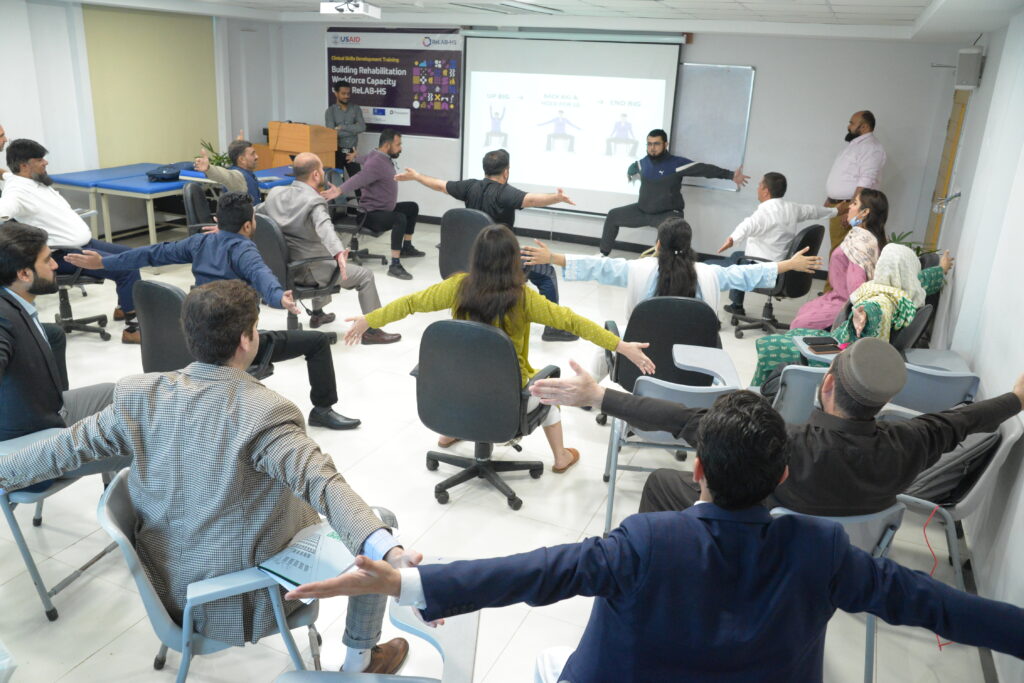 |
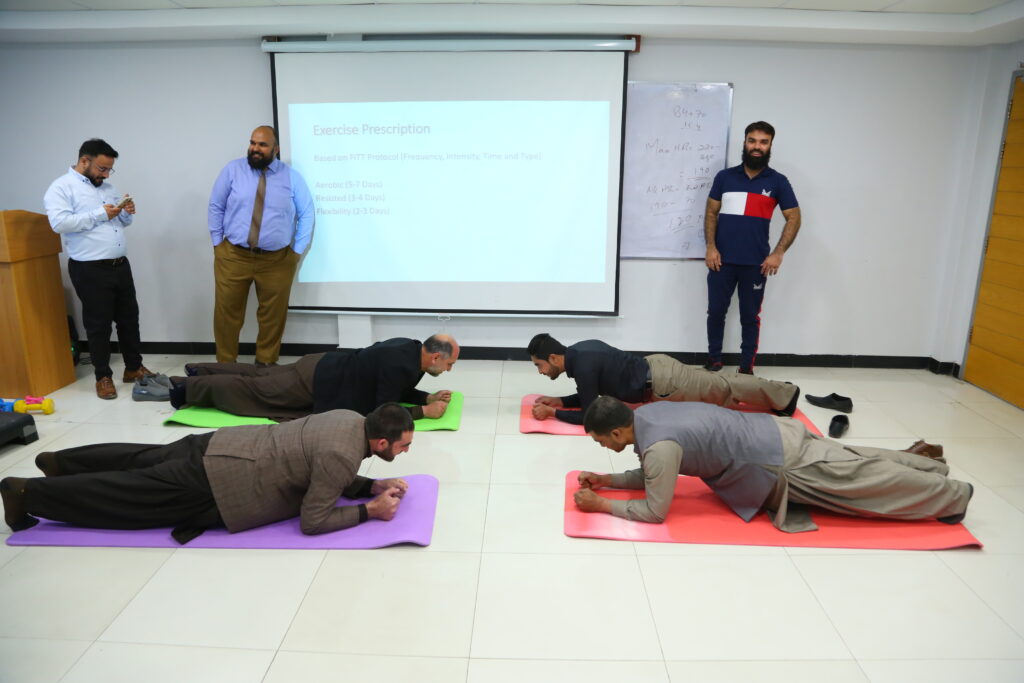 |
This meeting was all about participation and the experience of taking part in an exercise programme – including the emotional, mental and physical health benefits. The goal was to support participants in being able to integrate exercise into their own routine and their clinical practice in community settings.
Overall, the training was highly beneficial, informative and has contributed to my professional development in clinical skills. Thank you ReLAB-HS, USAID and Ziauddin University trainier and faculty members.
With a focus on interprofessional collaboration and problem solving of the practical hurdles involed in integrating exercise into varied groups in the community (with consideration of limited resources), the group were well set up to take this training into their own settings.
Thank you ReLAB-HS, Ziauddin University, facilitators and other partners for the effective training program. I learned new ways to integrate my skills in community based rehabilitation programs.
The real success of this meeting has been well and truly demonstrated when participants were optionally invited to feed back on any projects they are planning to implement in their own communities. So far four such projects have been presented back to the group, each focusing on a different community group and each with a different approach to increasing physical activity and exercise amongst the chosen community.
Thank you to the facilitator and participants it was a great experience to learn from all of you. These sort of training build interprofessional collaboration and enhance practitioner to improve his/her self and community too.
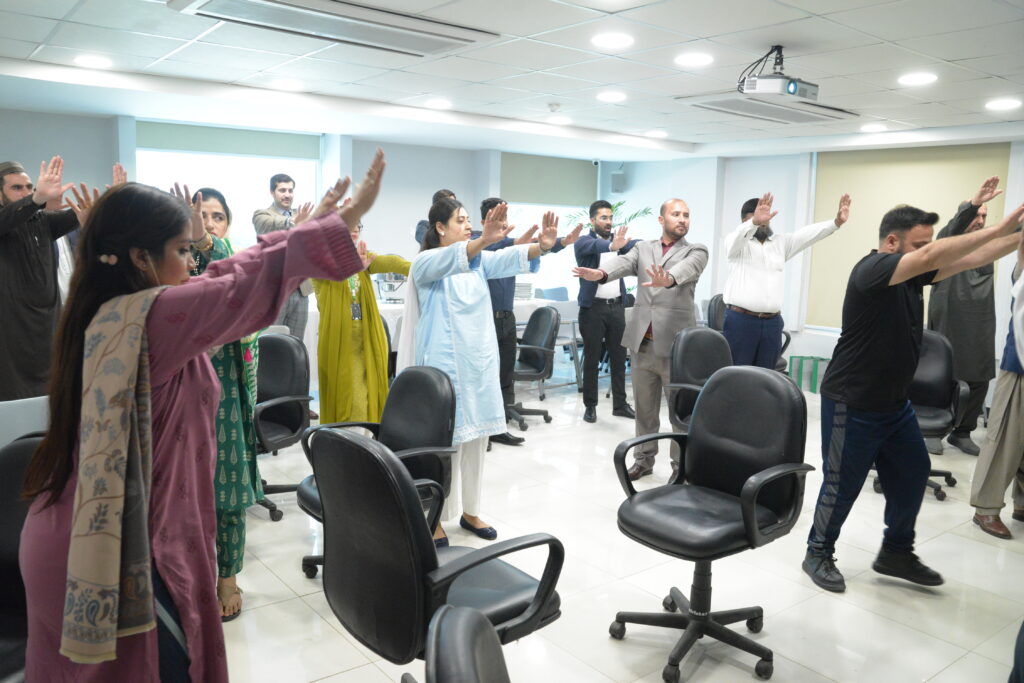 |
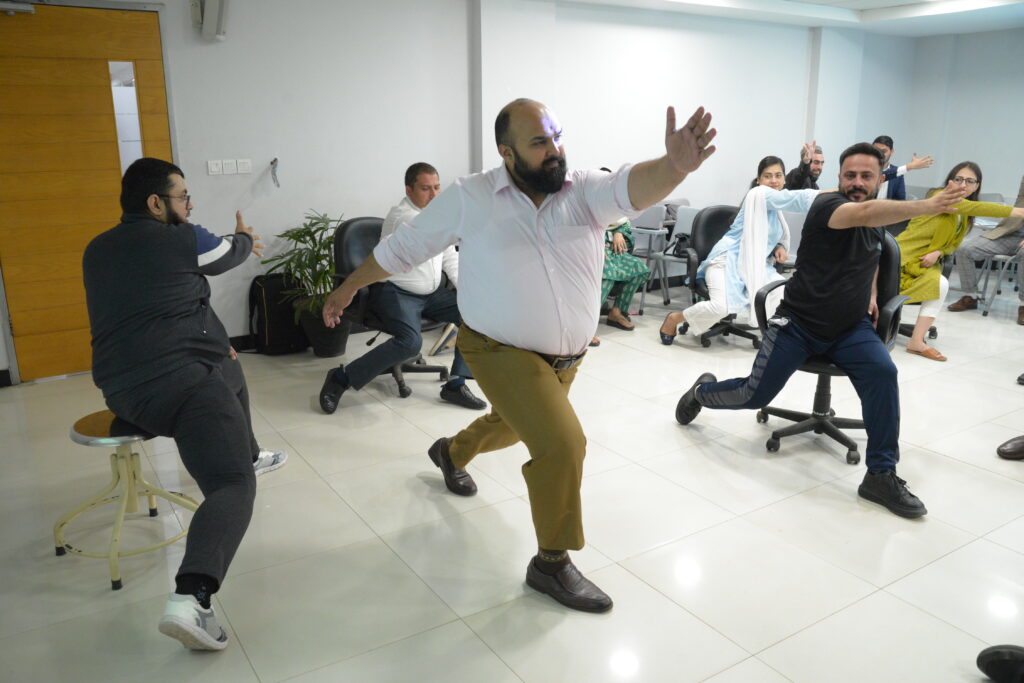 |
This was the second in-person training conducted in Pakistan as part of the ReLAB-HS Clinical Skills Training program and the first to be conducted at Ziauddin University. As a result of this programme the participants are empowered to support patients in integrating more physical activity into their daily routines, as well as in more effectively contributing to the rehabilitation of patients.

